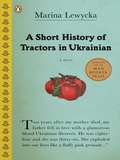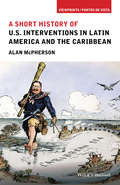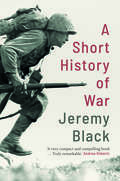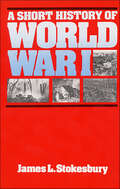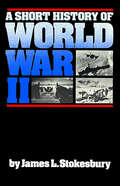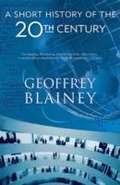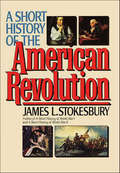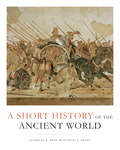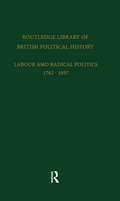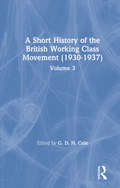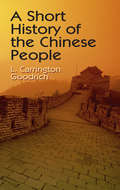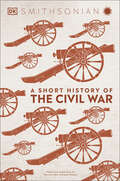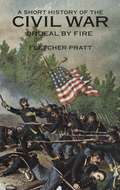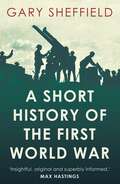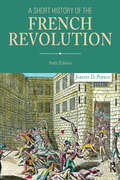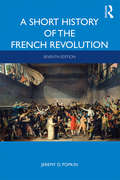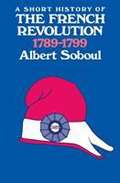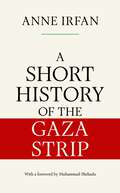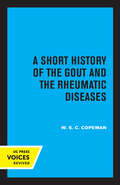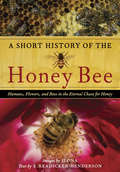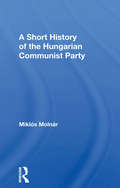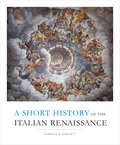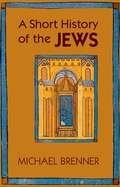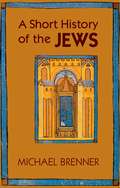- Table View
- List View
A Short History of Tractors in Ukrainian
by Marina LewyckaA Short History of Tractors in Ukrainian is bestselling author Marina Lewycka's hilarious and award winning debut novel. 'Two years after my mother died, my father fell in love with a glamorous blonde Ukrainian divorcée. He was eighty-four and she was thirty-six. She exploded into our lives like a fluffy pink grenade, churning up the murky water, bringing to the surface a sludge of sloughed-off memories, giving the family ghosts a kick up the backside. ' Sisters Vera and Nadezhda must aside a lifetime of feuding to save their émigré engineer father from voluptuous gold-digger Valentina. With her proclivity for green satin underwear and boil-in-the-bag cuisine, she will stop at nothing in her pursuit of Western wealth. But the sisters' campaign to oust Valentina unearths family secrets, uncovers fifty years of Europe's darkest history and sends them back to roots they'd much rather forget . . . 'It's rare to find a first novel that gets so much right . . . Lewycka is a seriously talented comic writer' Time Out'Hugely enjoyable . . . yields a golden harvest of family truths' Daily Telegraph'Delightful, funny, touching' SpectatorBestselling author Marina Lewkyca has received great critical acclaim since the publication of her hilarious first novel A Short History of Tractors in Ukrainian in 2005, which was the winner of the Bollinger Everyman Prize for Comic Fiction 2005, winner of the Saga Award for Wit 2005, shortlisted for the Orange Prize for Fiction 2005 and longlisted for the Booker prize 2005. Her other humorous novels Two Caravans (published as Strawberry Fields in the USA and Canada), We Are All Made of Glue and Various Pets Alive and Dead are also available from Penguin.
A Short History of U.S. Interventions in Latin America and the Caribbean (Viewpoints / Puntos de Vista)
by Alan McPhersonA Short History of U.S. Interventions in Latin America and the Caribbean presents a concise account of the full sweep of U.S. military invasions and interventions in Central America, South America, and the Caribbean from 1800 up to the present day. Engages in debates about the economic, military, political, and cultural motives that shaped U.S. interventions in Cuba, Nicaragua, Puerto Rico, Haiti, the Dominican Republic, Panama, Guatemala, Mexico, and elsewhere Deals with incidents that range from the taking of Florida to the Mexican War, the War of 1898, the Veracruz incident of 1914, the Bay of Pigs, and the 1989 invasion of Panama Features also the responses of Latin American countries to U.S. involvement Features unique coverage of 19th century interventions as well as 20th century incidents, and includes a series of helpful maps and illustrations
A Short History of War
by Jeremy BlackA wonderfully engaging, accessible introduction to war, from ancient times to the present and into the future Throughout history, warfare has transformed social, political, cultural, and religious aspects of our lives. We tell tales of wars—past, present, and future—to create and reinforce a common purpose. In this engaging overview, Jeremy Black examines war as a global phenomenon, looking at the First and Second World Wars as well as those ranging from Han China and Assyria, Imperial Rome, and Napoleonic France to Vietnam and Afghanistan. Black explores too the significance of warfare more broadly and the ways in which cultural understandings of conflict have lasting consequences in societies across the world. Weaponry, Black argues, has had a fundamental impact on modes of war: it created war in the air and transformed it at sea. Today, as twentieth-century weapons are challenged by drones and robotics, Black examines what the future of warfare looks like.
A Short History of World War I (Short History Ser.)
by James L. StokesburyWorld War I was a bloodletting so vast and unprecedented that for a generation it was known simply as the Great War. Casualty lists reached unimagined proportions as the same ground -- places like Ypres and the Somme -- was fought over again and again. Other major bloody battles remain vivid in memory to this day: Gallipoli and the Battle of Jutland are but two examples. Europe was at war with itself, and the effect on Western civilization was profound, its repercussions felt even today.World War I saw the introduction of modern technology into the military arena: The tank, airplane, machine gun, submarine, and -- most lethal of all -- poison gas, all received their first widespread use. Professor Stokesbury analyzes these technological innovations and the war's complex military campaigns in lucid detail. At the same time he discusses the great political events that unfolded during the war, such as the Russian Revolution and the end of the Hapsburg dynasty, putting the social and political side of the war into the context of modern European history.A Short History of World War I is the first history of this war to be written in twenty years. It incorporates recent research and current thinking about the war in a highly readable and lively style.
A Short History of World War II (Short History Ser.)
by James L. StokesburyA Short History of World War II is essentially a military history, but it reaches from the peace settlements of World War I to the drastically altered postwar world of the late 1940's. Lucidly written and eminently readable, it is factual and accurate enough to satisfy professional historians. A Short History of World War II will appeal equally to the general reader, the veteran who fought in the War, and the student interested in understanding the contemporary political world.
A Short History of the 20th Century
by Geoffrey BlaineyMost readers will find much that is new to them here, and sometimes material that refutes what they thought they knew. Blainey's analysis of the world's great religions alone justifies the book.
A Short History of the American Revolution (Short History Ser.)
by James L. StokesburyThe first one-volume survey of the American Revolution that is both objective and comprehensive, this outstanding narrative history traces the growth of a conflict that inexorably set the American colonies on the road to independence. Offering a spirited chronicle of the war itself -- the campaigns and strategies, the leaders on both sides, the problems of fielding and sustaining an army, and of maintaining morale -- Stokesbury also brings the reader to the Peace of Paris in 1783 and into the miltarily exhausted, financially ruined yet victorious United States as it emerged to create a workable national system.
A Short History of the Ancient World
by Nicholas K. Rauh Heidi E. KrausShort History of the Ancient World examines the emergence of urban civilizations on the continents of Africa, Europe, and Asia. Tracing developments from prehistoric times through the end of antiquity, the book investigates the unique social, cultural, religious, economic, and political characteristics of each civilization. Employing a social historical approach, Rauh argues that the ancient world encompassed more than simply Greece and Rome, and that urban populations across Eurasia and northern Africa were linked by an ancient world system. He explores the interconnectivity between societies in the Roman Mediterranean, East Africa, India, and China as they attained urban development, material prosperity, and cultural achievement. This beautifully designed full-color book includes an impressive range of images, as well as chronologies, timelines, overviews of dynasties, and chapter reviews.
A Short History of the British Working Class Movement (1937): Volume 2
by G. D. ColeThis is volume 2 of the set A Short History of the British Working Class Movement (1937). The volumes reprinted here provide a general narrative of the history of the working class movement in all its main aspects - Trade Unions, Socialism and Co-operatives. The historical focus is upon the latter part of the eighteenth century, set against a background of economic and social history.
A Short History of the British Working Class Movement (1937): Volume 3
by G. D. ColeThis is volume 3 of the set A Short History of the British Working Class Movement (1937). The volumes reprinted here provide a general narrative of the history of the working class movement in all its main aspects - Trade Unions, Socialism and Co-operatives. The historical focus is upon the latter part of the eighteenth century, set against a background of economic and social history.
A Short History of the Chinese People
by L. Carrington GoodrichThis survey begins with the prehistoric period, then discusses the major currents of Chinese history, philosophy, culture and politics -- from the reigns of such dynastic rulers as the Shang to the era of Mongol conquests and the Manchu dynasties, culminating with the birth of the Chinese Republic in 1912. 17 maps, 24 illustrations.
A Short History of the Civil War (DK Short Histories)
by DKExplore the fascinating history of America&’s bloodiest ever conflict. Combining expert historical insight with the eyewitness accounts of soldiers and civilians, A Short History of the Civil War offers a brilliant summary of the key events and wider context of the hostilities between North and South. Profiles of influential military and political leaders, and thought-provoking features on themes and experiences, from the evils of slavery to the treatment of wounded soldiers, bring the story dramatically to life. This book also features clear timelines that give an instant overview of the developments during the tumultuous war. Richly illustrated with a wealth of original artifacts, weaponry, and equipment, photography, and maps, this unique combination of imagery provides the most accessible, episode-by-episode account ever.
A Short History of the Civil War: Ordeal by Fire (Civil War)
by Fletcher PrattBest one-volume history brings the events, figures, and battles of monumental conflict vividly to life. Absorbing details of military campaigns, battlefield strategies, and personalities revealed in an audacious style that carries readers breathlessly along from the day of Lincoln's inauguration to Lee's surrender at Appomattox Court House.
A Short History of the First World War (Short Histories Ser.)
by Gary SheffieldSynthesizing the latest scholarship, acclaimed military historian Gary Sheffield cuts to the heart of the conflict that involved every major economic power in the world. With an emphasis on the Western Front, Sheffield explores such key issues as the causes of war; the search for peace and the peace settlements; the political, social, and economic consequences; the impact of "total war" on the war efforts of the belligerents; and the place of the War in the history of warfare. Accessible and incisive, this is the ultimate introduction for anyone wanting a clear understanding of what happened and why.
A Short History of the French Revolution
by Jeremy D. PopkinWritten for today's undergraduates, this up-to-date survey of the French Revolution and Napoleonic era offers a concise alternative to the longer texts geared to advanced study in the field. This text introduces students to the major events that comprise the story of the French Revolution; to the different ways in which historians have interpreted these event; to the political, social, and cultural origins of the Revolution; and to recent scholarship in the field.
A Short History of the French Revolution
by Jeremy D. PopkinA Short History of the French Revolution is an up-to-date survey of the French Revolution and Napoleonic era that introduces readers to the origins and events of this turbulent period in French history, and historians’ interpretations of these events. The book covers all aspects of the Revolution, including the political, social, and cultural origins of the Revolution, and its causes, events, and aftermath, to provide readers with a full, and yet concise, overview of the Revolution that helps them easily understand the key elements of the subject. Fully updated and revised, this new edition allows students to engage with the most current work on the subject with increased attention given to women’s role in the Revolution, full coverage of the struggles over race and slavery, a new emphasis on the populist element in revolutionary politics, and an expanded discussion of the historiography of the era. Supported by learning objectives, critical thinking questions, and suggestions for further reading, this is the perfect introduction to the French Revolution for students of French and European History in the late eighteenth century.
A Short History of the French Revolution
by Jeremy D. PopkinA Short History of the French Revolution is an up-to-date survey of the French Revolution and Napoleonic era that introduces readers to the origins and events of this turbulent period in French history, and historians’ interpretations of these events. The book covers all aspects of the Revolution, including the political, social, and cultural origins of the Revolution, and its causes, events, and aftermath. It provides readers with a full, and yet concise, overview of the Revolution that helps them easily understand the key elements of the subject. Fully updated and revised, this new edition allows students to engage with the most current work on the subject with increased attention given to women’s role in the Revolution, full coverage of the struggles over race and slavery, a new emphasis on the populist element in revolutionary politics, and an expanded discussion of the historiography of the era. Supported by learning objectives, critical thinking questions, and suggestions for further reading, this is the perfect introduction to the French Revolution for students of French and European History in the late eighteenth century.
A Short History of the French Revolution 1789-1799
by Albert SoboulAlbert Soboul has held the Chair of the History of the French Revolution at the Sorbone since 1967, and is probably the leading Marxist scholar working in that field today. The book translated here should be regarded more as a synopsis of Professor Soboul's interpretation of the Revolution than as a detailed account of the course of events; it is an essay in analysis rather than a narrative. In it the author argues that the French Revolution can only be understood in terms of class struggle, and that any attempt to diminish the significance of class conflict as its motive force obscures the meaning of the events of the Revolution and rends them ultimately incomprehensible. <p><p> The course of the Revolution and its final outcome, which was clear by the time Napoleon seized power in 1799, were the products of a complex class struggle enacted simultaneously on many levels, leading finally to the triumph of the bourgeoisie, the defeat of the aristocracy, and the fragmentation and collapse of the popular forces, who as the allies of the bourgeoisie had played a vital part in securing its victory. <p> Professor Soboul shows that although the Revolution was caused initially by specific factors peculiar to the structure of French society at the end of the Old Regime, it came to constitute the definitive type of the bourgeois revolution and opened the way for the ascendary of industrial capitalism in the next century, not merely in France, but in the rest of Europe and the world at large.
A Short History of the Gaza Strip
by Anne IrfanThe Gaza Strip is one of the most widely-reported on regions in the world—yet misinformation about its history and its people abound. In this vital book, historian Anne Irfan explains Gaza&’s outsized political significance through six pivotal moments in its modern history, beginning with Israel&’s expulsion of the Palestinian people upon its establishment in 1948, when the Gaza region was truncated to the &“strip&” we know today. As she takes us through Israel&’s occupation of Gaza, the Palestinian national struggle and formation of the PLO, the first intifada, the creation of the Palestinian Authority and the rise of Hamas, she tackles widespread historical ignorance and untangles contradicting narratives. Drawing on a decade of research, Irfan weaves in the voices of everyday Palestinians, from farmers and teachers to poets and activists. Written with remarkable clarity and compassion, A Short History of the Gaza Strip is an indispensable read for anyone seeking to understand Palestine today.
A Short History of the Gout and the Rheumatic Diseases
by W.S.C. CopemanThis title is part of UC Press's Voices Revived program, which commemorates University of California Press’s mission to seek out and cultivate the brightest minds and give them voice, reach, and impact. Drawing on a backlist dating to 1893, Voices Revived makes high-quality, peer-reviewed scholarship accessible once again using print-on-demand technology. This title was originally published in 1964.
A Short History of the Honey Bee: Humans, Flowers, and Bees in the Eternal Chase for Honey
by E. Readicker-Henderson Ilona McCartyThere are around 16,000 species of bee. Only seven of these are responsible for creating the world's sweetest treat—honey. Combining Ilona's gorgeous photography and E. Readicker-Henderson's engaging text, A Short History of the Honey Bee follows the journey from flower to hive to honey throughout history.A Short History of the Honey Bee starts with the story of the honey bee—why it is named Apis mellifera, how it has evolved from a solitary creature to one that travels in groups, why it stings, and how pollination really works. Readicker-Henderson then moves on to the honey, detailing its history from a wild food foraged for on cliffs to the many varieties available for purchase today. But it is the everyday importance of the bee that remains the central message. Forty percent of the world's food supply—including apples, tomatoes, and strawberries—is dependent on pollination by honeybees. Colony collapse, when the worker bees suddenly disappear and leave behind the queen and the hive, is an ecological and agricultural crisis. For this reason alone we need to be more aware of the significance of bees.
A Short History of the Hungarian Communist Party
by Joseph J Molnar Miklos MolnarIn spite of its small size, the Hungarian Communist party (HCP), founded in the fall of 1918, has played an important role both in Hungary's national history and in the international communist movement. Hungary, which was the only soviet republic other than the ephemeral Bavarian soviet republic to exist outside the USSR, lasted five months during the critical period of the Paris Peace Conference. The "veterans" of the Hungarian soviet republic, like Bela Kun, Georg Lukacs, and Eugen Varga, later held important posts in the Comintern and in the international Communist press. In the Stalinist era, the HCP distinguished itself by excessive zeal in the application of "integral Stalinism" in foreign policy (e.g., anti-Titoism), the economy, and political life (e.g., the Rajk and Kadar trials). However, the 1956 revolution was engineered by the revisionist communist intelligentsia and by such revisionist party leaders as Imre Nagy. Finally, in spite of its repressive role after the revolution, in the 1970s under Janos Kadar the HCP introduced a new system of "liberalism" and economic reform.
A Short History of the Italian Renaissance
by Kenneth R. BartlettAward-winning lecturer Kenneth R. Bartlett applies his decades of experience teaching the Italian Renaissance to this beautifully illustrated overview. In his introductory Note to the Reader, Bartlett first explains why he chose Jacob Burckhardt's classic narrative to guide students through the complex history of the Renaissance and then provides his own contemporary interpretation of that narrative. Over seventy color illustrations, genealogies of important Renaissance families, eight maps, a list of popes, a timeline of events, a bibliography, and an index are included.
A Short History of the Jews
by Michael Brenner Jeremiah RiemerThis is a sweeping and powerful narrative history of the Jewish people from biblical times to today. Based on the latest scholarship and richly illustrated, it is the most authoritative and accessible chronicle of the Jewish experience available. Michael Brenner tells a dramatic story of change and migration deeply rooted in tradition, taking readers from the mythic wanderings of Moses to the unspeakable atrocities of the Holocaust; from the Babylonian exile to the founding of the modern state of Israel; and from the Sephardic communities under medieval Islam to the shtetls of eastern Europe and the Hasidic enclaves of modern-day Brooklyn. The book is full of fascinating personal stories of exodus and return, from that told about Abraham, who brought his newfound faith into Canaan, to that of Holocaust survivor Esther Barkai, who lived on a kibbutz established on a German estate seized from the Nazi Julius Streicher as she awaited resettlement in Israel. Describing the events and people that have shaped Jewish history, and highlighting the important contributions Jews have made to the arts, politics, religion, and science,A Short History of the Jews is a compelling blend of storytelling and scholarship that brings the Jewish past marvelously to life.
A Short History of the Jews
by Michael BrennerA concise narrative history that brings the story of the Jewish people marvelously to lifeThis is a sweeping and powerful narrative history of the Jewish people from biblical times to today. Based on the latest scholarship and richly illustrated, it is the most authoritative and accessible chronicle of the Jewish experience available. Michael Brenner tells a dramatic story of change and migration deeply rooted in tradition, taking readers from the mythic wanderings of Moses to the unspeakable atrocities of the Holocaust; from the Babylonian exile to the founding of the modern state of Israel; and from the Sephardic communities under medieval Islam to the shtetls of eastern Europe and the Hasidic enclaves of modern-day Brooklyn. The book is full of fascinating personal stories of exodus and return, from that told about Abraham, who brought his newfound faith into Canaan, to that of Holocaust survivor Esther Barkai, who lived on a kibbutz established on a German estate seized from the Nazi Julius Streicher as she awaited resettlement in Israel. Describing the events and people that have shaped Jewish history, and highlighting the important contributions Jews have made to the arts, politics, religion, and science, A Short History of the Jews is a compelling blend of storytelling and scholarship that brings the Jewish past marvelously to life.
